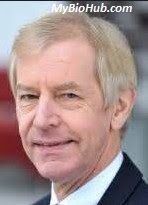Stephen Arthur Cook, OC OOnt was born on 14 December, 1939. is an American-Canadian computer scientist and mathematician who has made major contributions to the fields of complexity theory and proof complexity. He is currently a university professor at the University of Toronto, Department of Computer Science and Department of Mathematics.
Cook received his Bachelor’s degree in 1961 from the University of Michigan, and his Master’s degree and Ph.D. from Harvard University, respectively in 1962 and 1966. He joined the University of California, Berkeley, mathematics department in 1966 as an assistant professor, and stayed there until 1970 when he was denied reappointment. In a speech celebrating the 30th anniversary of the Berkeley EECS department, fellow Turing Award winner and Berkeley professor Richard Karp said that, “It is to our everlasting shame that we were unable to persuade the math department to give him tenure.
Stephen Cook is considered one of the forefathers of computational complexity theory.
During his PhD, Cook worked on complexity of functions, mainly on multiplication. In his seminal 1971 paper “The Complexity of Theorem Proving Procedures”,[2][3] Cook formalized the notions of polynomial-time reduction (a.k.a. Cook reduction) and NP-completeness, and proved the existence of an NP-complete problem by showing that the Boolean satisfiability problem (usually known as SAT) is NP-complete.
Cook conjectures that there are optimization problems (with easily checkable solutions) which cannot be solved by efficient algorithms, i.e., P is not equal to NP. This conjecture has generated a great deal of research in computational complexity theory, which has considerably improved our understanding of the inherent difficulty of computational problems and what can be computed efficiently. Yet, the conjecture remains open and is among the seven famous Millennium Prize Problems.
In his “Feasibly Constructive Proofs and the Propositional Calculus”[6] paper published in 1975, he introduced the equational theory PV (standing for Polynomial-time Verifiable) to formalize the notion of proofs using only polynomial-time concepts. He made another major contribution to the field in his 1979 paper, joint with his student Robert A. Reckhow, “The Relative Efficiency of Propositional Proof Systems”,[7] in which they formalized the notions of p-simulation and efficient propositional proof system, which started an area now called propositional proof complexity. They proved that the existence of a proof system in which every true formula has a short proof is equivalent to NP = coNP. Cook co-authored a book with his student Phuong The Nguyen in this area titled “Logical Foundations of Proof Complexity”.
His main research areas are complexity theory and proof complexity, with excursions into programming language semantics, parallel computation, and artificial intelligence. Other areas which he has contributed to include bounded arithmetic, bounded reverse mathematics, complexity of higher type functions, complexity of analysis, and lower bounds in propositional proof systems.
Looking into his Awards and Honors, Cook was awarded a Steacie Fellowship in 1977, a Killam Research Fellowship in 1982, and received the CRM-Fields-PIMS prize in 1999. He has won John L. Synge Award and Bernard Bolzano Medal, and is a fellow of the Royal Society of London and Royal Society of Canada. Cook was elected to membership in the National Academy of Sciences (United States) and the American Academy of Arts and Sciences. Cook won the ACM Turing Award in 1982. Association for Computing Machinery honored him as a Fellow of ACM in 2008 for his fundamental contributions to the theory of computational complexity.



